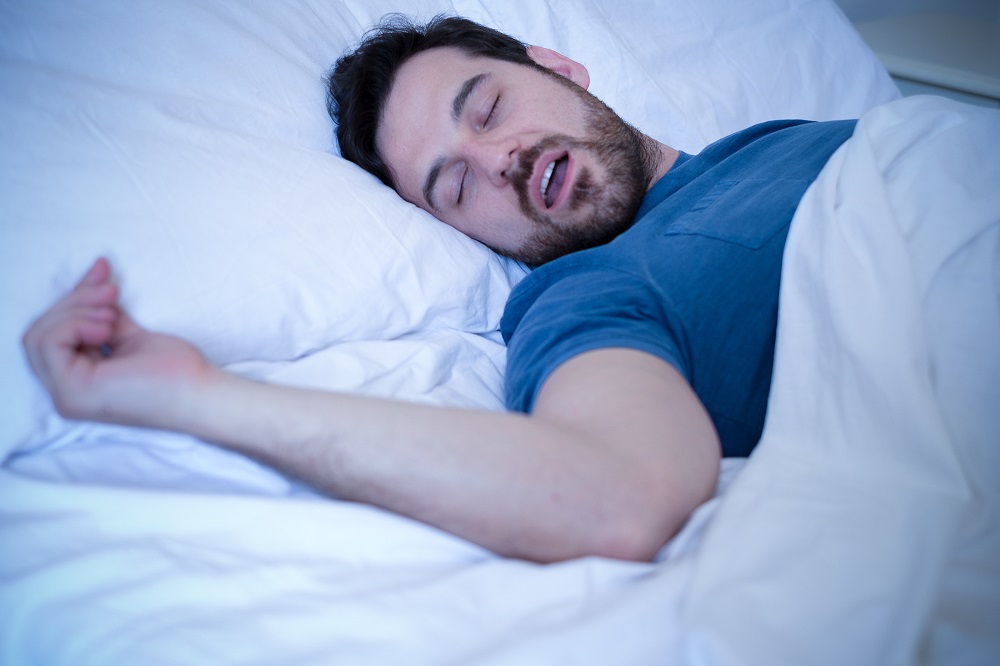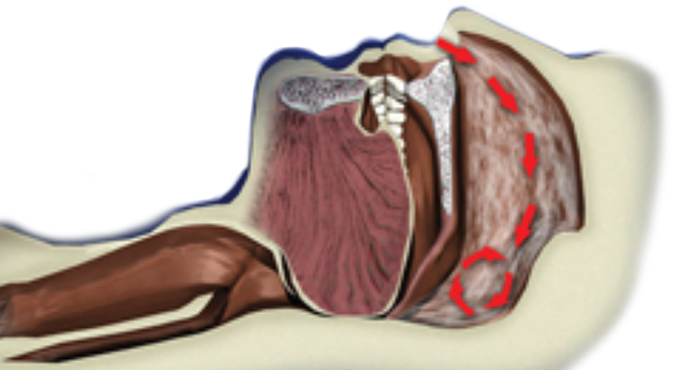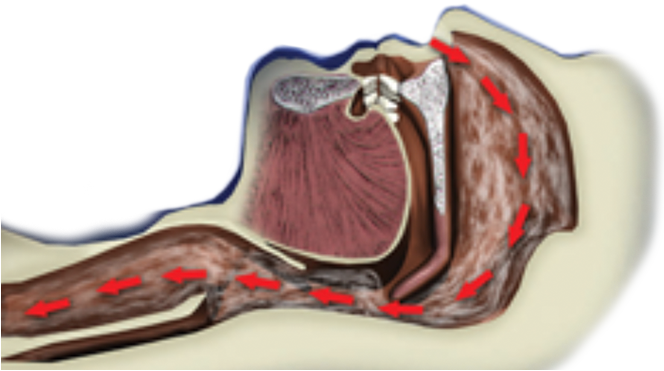Sleep apnea, the leading cause of excessive daytime sleepiness, is characterized by pauses in breathing or shallow breathing caused by blockages in the airway. These blockages occur when tissues in the airway relax excessively or collapse, cutting off the airway. As you attempt to take a breath, this obstruction prevents air from reaching your lungs, leading to choking and low oxygen levels.
These pauses, known as apnea, repeatedly disrupt your sleep and respiration, resulting in poor sleep quality and contributing to daytime sleepiness and fatigue. In mild cases, these pauses can occur around 5 times per hour, while in severe cases, they can happen 50 to 100 times per hour. Besides disrupting your sleep, these pauses can also lead to dangerously low oxygen levels, making appropriate treatment essential.

Excessive Daytime Sleepiness:
Sleep apnea prevents you from achieving a restful night’s sleep. Despite sleeping through the night, the quality of your sleep is greatly compromised, leading to daytime sleepiness and overall fatigue.
Impaired Memory and Cognition:
Sleep apnea can reduce the time spent in restorative sleep and lead to drops in oxygen levels, resulting in insufficiently oxygenated blood flow to the brain. This can result in neurocognitive deficits such as memory loss, difficulty concentrating, and a general sense of mental sluggishness.
Hypertension, Heart Attack, and Stroke:
Severe sleep apnea has direct links to conditions like hypertension, stroke, heart disease, diabetes, and other high-risk medical conditions.
Weight Gain:
Sleep apnea can impact the body’s metabolism, leading to weight gain. Additionally, it can increase fatigue and contribute to depression, making it even more challenging to engage in exercise and active weight loss.
Snoring:
Sleep apnea is often accompanied by loud snoring, which can lead to discomfort for a bed partner and disrupt sleep quality. It can also result in awkward situations when traveling or sleeping away from home.

Obstructed Airway
Increased Energy and Libido:
Effective therapy leads to significant increases in energy levels for patients. They often find themselves able to engage in more vigorous exercise, leading to weight loss and the resolution of other sleep apnea symptoms.
Increased Productivity:
Improved focus and concentration resulting from therapy translate into increased productivity, benefiting both job performance and personal relationships.
Better Management of Disease:
Treating sleep apnea can significantly reduce the impact of conditions like high blood pressure, heart disease, diabetes, and certain neurocognitive deficits.
Share a Bed With Your Partner Again:
Many couples resort to sleeping in separate rooms due to the disturbances caused by sleep apnea and snoring. Effective therapy can bring you back together in the same bed.
A Better Night’s Sleep:
With effective therapy, your sleep will be deep and restorative. You’ll wake up feeling refreshed and maintain energy throughout the day.

Obstructed Airway
Since 2004, Los Angeles Sleep Study Institute has been diagnosing and treating patients with sleep disorders throughout Los Angeles and Ventura counties. We accept all major medical insurances, including Blue Cross, Blue Shield, and Medicare.